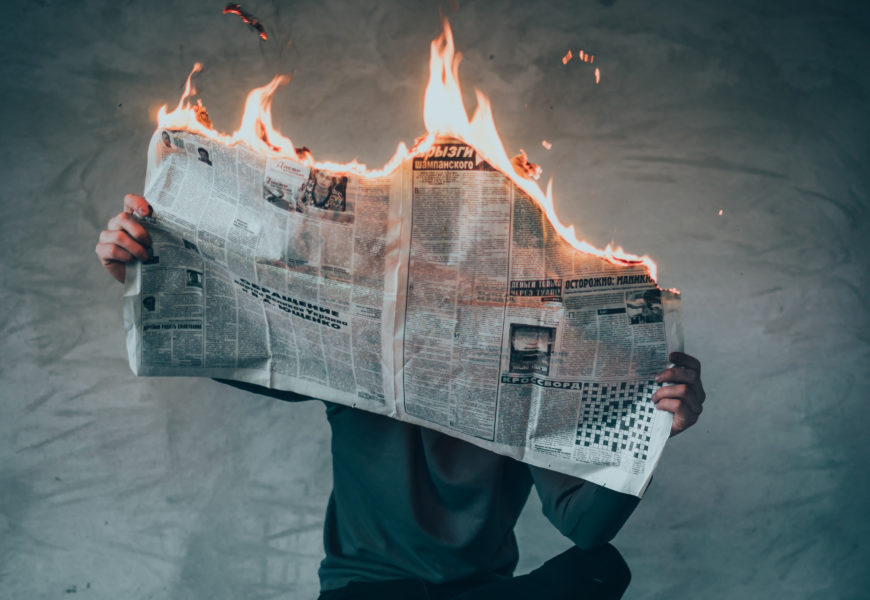“From where do you get your primary source of news?”
After going around the table introducing ourselves, almost all of our class revealed that they learned about the world through social media.
The professor of our “Introduction to Journalism” class nodded thoughtfully. I felt embarrassed. It seems that our generation rarely reads a print newspaper aymore.
Stacks of The New York Times are made available (sometimes) in newspaper stands in the library and Harris. CNN is turned on almost 24/7 in Blue Camel Café. And yet, most students on campus first hear about “breaking news” on their phone through Twitter, Reddit, and the Today at Conn email.
Media ethics is the focus of Conn’s only offered journalism class this semester. Taught once a week by adjunct professor Peter Huoppi, who is also the Director of Multimedia for the local newspaper The Day, the course will examine the new standard of ethics in an age influenced by technology. Through social media, everyone from the common citizen to President of the United States can become a journalist. Therefore, “Introduction to Journalism” is meant to help everyone identify dishonest information as well as prevent themselves from being unethical online.
On Dec. 18, President Trump became the third U.S. president to ever be impeached. One of the reasons behind his impeachment is for violating the bounds of political rhetoric, especially on social media. The POTUS tweets themselves have become “breaking news” that influence violent attacks and descrimination –– even against the “treasonous” news media.
The word “media” comes from the Latin noun “medium” and the Latin adjective “medius,” which means neutral, or middle. These are all things that the media should strive to be –– the eyes and ears and mouthpiece of the public, rather than the mind and heart.
That said, how much “humanness” can a reporter be allowed to have? On TV, the clear cadence of their voice and the openness in their expression all suggest that they are merely conduits of information. But what if their personal morals conflict with the generally accepted code of ethics in journalism? What if they want to protect the victims, or themselves?
Remember from the beginning of the year, when we wrote our first Letter from the Editors vowing to restore trust in our newspaper? This promise came as a response to articles published a year ago that committed libel by misquoting interviewed sources. The College Voice acts as a source of information both in print and online for students, faculty, and staff in New London and beyond. To us, reporting news “ethically” means respecting sources and honoring requests of anonymity from victims. Still, the role of the journalist is to act as a source of information and educate the community on relevant news. With the help of the journalism class and our Opinions Editor Will Canellakis’s internship at The Day, we hope to continue this dialogue between The Day and The College Voice, and ensure reporting that both respects privacy and the right of the public to be informed.
This semester we will (finally) be offering an open round-table discussion of the New York Times article “News or ‘Trauma Porn’? Student Journalists Face Blowback on Campus”, which explores the right of student publications to post photographs of protesters on social media.
Think about what you’d like to bring to the table. Dates to come soon.
– Sophia










